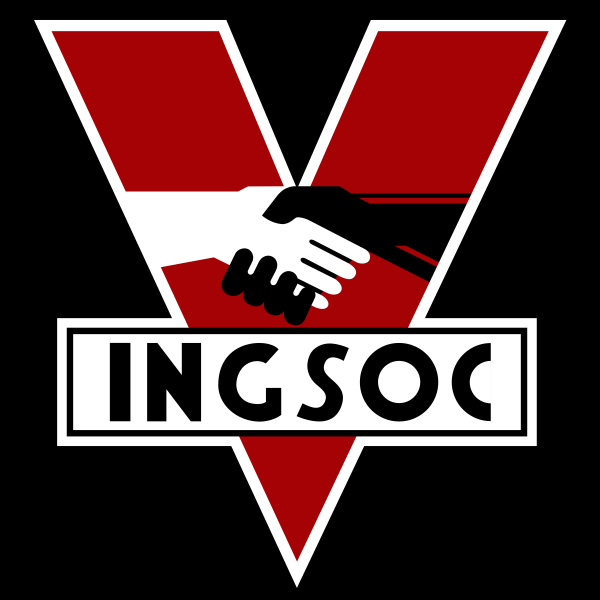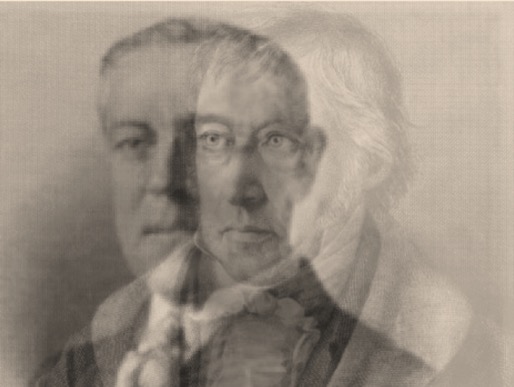Why Tyrants Redefine Words

To spot a would-be autocrat, look for someone who undermines language.
There is a passage that’s been haunting me for years now, from the History of the Peloponnesian War by Thucydides. It’s about what happens when a society turns in on itself.
Throughout the late 400s BC, Athens and Sparta—the two great city-states of Ancient Greece—were locked in a furious and ever-escalating struggle for dominance. Caught in the wake, smaller communities around the Mediterranean had to choose where they would stand. Practically no one was neutral or immune: beginning with the island city of Corcyra, polities all over Greece went to war with themselves.
Usually it was the lower-class majority that wanted to side with Athens, and the well-heeled minority that wanted to side with Sparta. The consequent struggles attenuated or nullified all of the bonds that make a group of people into a state. Ancient and sacred laws of religious amnesty were violated. Fathers killed their sons. Besides which—and this is what’s been keeping me up at night—words lost their meaning. Here is what Thucydides writes (3.82, my translation):
They even changed the agreed-upon meanings of words to the opposite of the right ones. Rash impudence was called “courageous loyalty”; careful deliberation, “specious cowardice”…. Getting revenge was considered better than never being wronged in the first place…. The cause of all this was hunger for power motivated by greed and ambition.
Social upheaval, in other words, presents an opportunity for would-be autocrats to make a grab for power by weakening the foundations of legitimate rule. Those foundations are: piety, family, and language.
As Thucydides would probably be the first to say were he alive, these basic dynamics of human behavior have not changed in 2,500 years and are unlikely to change in the next 2,500. It is thus no accident that the major Socialist regimes of the 20th century have done their best to redefine important words. “Newspeak” was no mere invention of George Orwell in 1984.
In this winter’s Claremont Review of Books, for example, Charles Horner points out that words like “democracy” and “legality” were not abandoned altogether in Stalin’s Russia but repurposed. The USSR claimed to provide “true” “Socialist” democracy in contrast to the “sham” democracy on offer in Western states. The Communist Party of China, Horner continues, does much the same thing today with the word “Chinese”: “Chinese democracy” is the term used by the CPC to describe a system which of course is not democracy at all.
There is a reason why those who lust after power set about redefining, rather than simply eschewing, the words which properly belong to free men and women. It is because concepts like “democracy” and “liberty,” if rightly used, command a reverence that arises naturally from their true meanings. Freedom and popular sovereignty are self-evidently good and noble things, triumphs of the human spirit which Socialism seeks to crush. Since totalitarians cannot produce such triumphs, they must ape them, using the cover of falsely redefined words to lend themselves an air of undeserved gravity.
If this has not started to sound to you like the identitarian Left, you are not paying close enough attention. Last week, after the abject and supremely merited failure of Senator Kamala Harris to obtain the Democratic presidential nomination, commentator Leah Greenberg wrote that “the implicit racism and sexism of ‘electability’ is deeply damaging to democracy.” Harris, Greenberg implied, was unfairly denied the nomination by an electorate which cannot countenance a black woman in office.
Leave aside for a moment the obvious truth that Harris was in fact denied the nomination because she completely lacked both principle and charisma. Imagine that Democratic voters really had snubbed her because of her race or gender. That would be lamentable, but it would plainly not be “damaging to democracy.” It is in fact the very essence of democracy, the most proper possible definition of the word, that the public choose leaders of their own for whatever reasons they see fit.
What Greenberg really means is: “public opinion has produced an outcome of which I disapprove, therefore I declare that opinion not democracy but rather racism and sexism.” The only possible definition of the word “democracy” as used in this sentence is “society as I demand it be organized.” The only possible definition of “racism and sexism” is “forces which oppose me.” Those, indeed, would be pretty good working definitions of the terms as used today by the far Left writ large.
The co-option of words is, Thucydides knew, just as threatening to good government as the devaluation of religion and the dissolution of the family. The three trends go hand in hand, and they remain now what they have ever been: the unholy tools of aspiring petty tyrants.
The American Mind presents a range of perspectives. Views are writers’ own and do not necessarily represent those of The Claremont Institute.
The American Mind is a publication of the Claremont Institute, a non-profit 501(c)(3) organization, dedicated to restoring the principles of the American Founding to their rightful, preeminent authority in our national life. Interested in supporting our work? Gifts to the Claremont Institute are tax-deductible.
The high cost of losing postmodern America’s political language games.
“Decolonization” is a cynical scam.
A Preview of National Conservatism II
The regime is desperate to impose polyamory.
How to resurrect what the Ivies killed.






